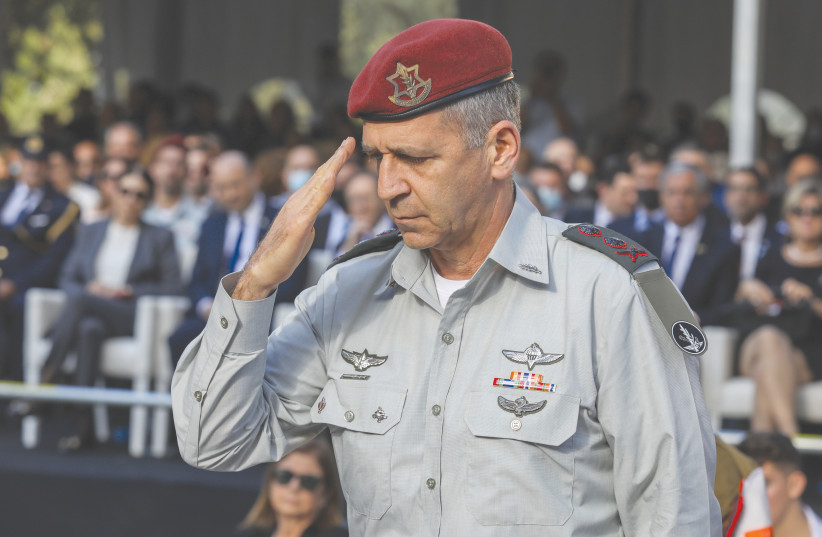After several years of stagnation, the salaries of IDF soldiers will rise 50% by the new year, the Defense Ministry said on Tuesday.
Prime Minister Naftali Bennett praised the decision, saying it was “the least we can do for the soldiers who are guarding us.”
The total cost of the increase will be NIS 900 million, which will be financed from both the Defense and Finance ministries’ budgets.
In a joint statement, the two ministries said that salaries of combat troops will increase for the first time since 2017.
During the third and final year of service, combat troops will see their salary rise to NIS 3,048, that of combat support troops to NIS 1,793, and administrative positions will pay NIS 1,235.

Despite the raise, it remains a fraction of the minimum wage, which stands at NIS 5,300.
“The people’s army is the guarantee for Israel’s security, and we must cherish the soldiers who serve in it,” IDF Chief of Staff Lt.-Gen. Aviv Kohavi said in a statement. “Soldiers are the source of the IDF’s power. Every soldier is a valuable asset, and caring for them is our obligation.”
The rise in salaries comes as part of a broad program to treat soldiers better beginning with their enlistment until after their release from service. Other parts of this program include increasing the economic support for lone soldiers, and soldiers in need of financial aid.
“We will continue to work to ensure adequate conditions of service and appropriate payment for IDF soldiers,” Kohavi said. “I thank the defense and finance ministers for their decision and action for the betterment of the welfare of our soldiers.”
Defense Minister Benny Gantz said that decision “does justice to those who serve, and that it has significant implications for force building in the IDF and its continued existence as the people’s army.”
Calling it a “national need,” Gantz said that the rise is part of broad reform in the IDF, and that along with the rise in salaries, “we will continue to take care of all soldiers, and expand and strengthen soldiers with special needs who need additional assistance.”
Finance Minister Avigdor Liberman said that he had “promised” to increase the salaries of conscripts, and that the decision to do so “reflects our responsibility and duty as leaders toward those who contribute to the state and expresses a policy in changing priorities that this government leads.”
The rise in salaries joins a series of measures in the military that have come into effect following the approval of the state budget, including Northern Shield that aims to improve the infrastructure of shelters in Israel’s North; One Soul program to help veterans with PTSD; and From Uniform to Studies.
“Soldiers in the IDF: the State of Israel – and I, in particular – will continue to care for you and your well-being,” Liberman said.
A senior IDF officer said that because military service in Israel is compulsory, “semantics is important. We don’t call it salaries. We call it subsistence costs – there’s a big difference.”
The officer said that the rise has “nothing” to do with the rise in pensions and salaries for career soldiers.
The senior officer said that while there’s been a lot of public criticism lately that the IDF is no longer the people’s army, “that model is the one that allows us to meet our mission and gives us the qualitative advantage. The people in the military are the source of its power. Service in the IDF must be maintained, and the state and the military should cherish the young men and women who enlist, especially those in combat positions.”
But, the officer admitted, “we have other issues that need to be addressed,” pointing to food on bases and lack of public transportation for troops. We take it very seriously. However, there are mistakes we must not make.”
A previous bill to raise the wages of IDF soldiers was shot down in the Knesset in October.
